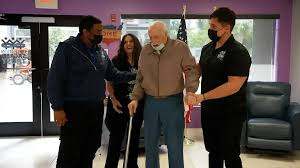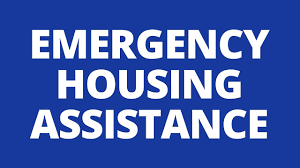Help for Veterans Facing Eviction
For many veterans, the transition to civilian life can be challenging, and financial difficulties can arise. One of the most distressing situations a veteran can face is the threat of eviction from their home. However, there are resources available to help veterans in this difficult situation.
Several programs and organizations offer assistance to veterans facing eviction. The Department of Veterans Affairs (VA) provides support through programs such as the Supportive Services for Veteran Families (SSVF) program, which offers temporary financial assistance to help veterans avoid homelessness. Additionally, local VA offices may have resources and referrals for veterans in need.
Non-profit organizations like the Veterans Association of America also provide support to veterans facing eviction. These organizations may offer financial assistance, housing counseling, and other services to help veterans stabilize their housing situation.
If you or a veteran you know is facing eviction, it is important to seek help as soon as possible. Contacting local VA offices, non-profit organizations, or reaching out to veteran support hotlines can connect you with resources that can provide assistance and guidance during this challenging time.
Remember, you are not alone. There are people and organizations ready to help veterans facing eviction and other housing challenges. Reach out for support and take advantage of the resources available to ensure that you or your loved one can remain safely housed.
8 Essential Tips for Veterans Facing Eviction: Resources and Support
- Contact local veteran support organizations for assistance.
- Explore government programs that provide housing help for veterans.
- Seek legal advice from organizations specializing in veteran rights.
- Communicate with your landlord about the situation and possible solutions.
- Look into temporary housing options while resolving the eviction issue.
- Create a budget plan to manage finances effectively during this time.
- Reach out to mental health professionals for emotional support and guidance.
- Stay informed about resources available specifically for veterans in need of housing assistance.
Contact local veteran support organizations for assistance.
When veterans are facing eviction, a crucial tip is to reach out to local veteran support organizations for assistance. These organizations are dedicated to helping veterans in need and can provide valuable resources and guidance to navigate the challenges of potential homelessness. By contacting local veteran support organizations, veterans can access specialized services tailored to their unique circumstances, including financial assistance, housing counseling, and connections to other essential resources. Seeking help from these organizations can make a significant difference in helping veterans facing eviction secure the support they need to maintain stable housing and rebuild their lives.
Explore government programs that provide housing help for veterans.
When facing eviction, veterans can explore government programs that offer housing assistance tailored to their needs. Programs such as the Supportive Services for Veteran Families (SSVF) provided by the Department of Veterans Affairs can offer temporary financial aid to prevent homelessness. By tapping into these resources, veterans can find crucial support in navigating housing challenges and securing stable living arrangements.
Seek legal advice from organizations specializing in veteran rights.
Seeking legal advice from organizations specializing in veteran rights can be a crucial step for veterans facing eviction. These organizations have the expertise and experience to provide targeted assistance and guidance tailored to the unique challenges veterans may encounter in housing matters. By consulting with these specialized legal resources, veterans can better understand their rights, explore potential legal remedies, and receive support in navigating the complex legal processes involved in eviction cases. This proactive approach can help veterans protect their housing stability and access the necessary resources to address their specific needs effectively.
Communicate with your landlord about the situation and possible solutions.
When facing the threat of eviction, it is crucial for veterans to communicate openly and honestly with their landlords about their situation and explore possible solutions together. By initiating a conversation with the landlord, veterans can potentially work out a plan to address the eviction risk, such as negotiating a payment plan, seeking temporary financial assistance, or exploring alternative housing options. Clear communication can often lead to more understanding and cooperation from the landlord, helping veterans navigate through this challenging time more effectively.
Look into temporary housing options while resolving the eviction issue.
When facing eviction, veterans can benefit from exploring temporary housing options while working to resolve the eviction issue. Temporary housing solutions, such as staying with family or friends, utilizing emergency shelters, or seeking assistance from local veteran support programs, can provide a safe and stable living arrangement during this challenging time. By considering temporary housing options, veterans can alleviate immediate housing concerns while actively addressing the eviction issue and working towards a long-term solution.
Create a budget plan to manage finances effectively during this time.
During challenging times such as facing eviction, creating a budget plan can be a crucial step for veterans to manage their finances effectively. By outlining income, expenses, and prioritizing essential payments, veterans can gain better control over their financial situation. A budget plan can help identify areas where expenses can be reduced or reallocated to address immediate needs like housing costs. By proactively managing finances through a budget plan, veterans can work towards stabilizing their financial situation and avoiding eviction.
Reach out to mental health professionals for emotional support and guidance.
When facing the stress and uncertainty of eviction, it is crucial for veterans to prioritize their mental well-being. Seeking support from mental health professionals can provide emotional guidance and assistance during this challenging time. These professionals can offer a safe space to express feelings, process emotions, and develop coping strategies to navigate the eviction process. By reaching out for help, veterans can access valuable resources to support their mental health and overall well-being as they work through the difficulties of facing eviction.
Stay informed about resources available specifically for veterans in need of housing assistance.
It is crucial for veterans facing eviction to stay informed about resources specifically tailored to their needs for housing assistance. By staying informed about available programs and organizations that cater to veterans, individuals can access the support and guidance necessary to navigate through challenging housing situations. Being aware of these resources ensures that veterans can take advantage of the assistance available to them, increasing the likelihood of finding solutions to prevent eviction and maintain stable housing.


